第86章 The Revival of Antiquity Introductory (36)
Yet ever and again we turn with admiration to the august figure of the great Genoese, by whom a new continent beyond the ocean was demanded, sought and found; and who was the first to be able to say: 'il mondo e poco'--the world is not so large as men have thought.At the time when Spain gave Alexander VI to the Italians, Italy gave Columbus to the Spaniards.Only a few weeks before the death of that pope Columbus wrote from Jamaica his noble letter (July 7, 1503) to the thankless Catholic kings, which the ages to come can never read without profound emotion.In a codicil to his will, dated Valladolid, May 4, I 506, he bequeathed to 'his beloved home, the Republic of Genoa, the prayer-book which Pope Alexander had given him, and which in prison, in conflict, and in every kind of adversity, had been to him the greatest of comforts.' It seems as if these words cast upon the abhorred name of Borgia one last gleam of grace and mercy.
The development of geographical and allied sciences among the Italians must, like the history of their voyages, be touched upon but very briefly.A superficial comparison of their achievements with those of other nations shows an early and striking superiority on their part.
Where, in the middle of the fifteenth century, could be found, anywhere but in Italy, such a union of geographical, statistical, and historical knowledge as was found in Aeneas Sylvius? Not only in his great geographical work, but in his letters and commentaries, he describes with equal mastery landscapes, cities, manners, industries and products, political conditions and constitutions, wherever he can use his own observation or the evidence of eye-witnesses.What he takes from books is naturally of less moment.Even the short sketch of that valley in the Tyrolese Alps where Frederick III had given him a benefice, and still more his description of Scotland, leaves untouched none of the relations of human life, and displays a power and method of unbiased observation and comparison impossible in any but a countryman of Columbus, trained in the school of the ancients.Thousands saw and, in part, knew what he did, but they felt no impulse to draw a picture of it, and were unconscious that the world desired such pictures.
In geography, as in other matters, it is vain to attempt to distinguish how much is to be attributed to the study of the ancients, and how much to the special genius of the Italians.They saw and treated the things of this world from an objective point of view, even before they were familiar with ancient literature, partly because they were themselves a half-ancient people, and partly because their political circumstances predisposed them to it; but they would not so rapidly have attained to such perfection had not the old geographers shown them the way.The influence of the existing Italian geographies on the spirit and tendencies of the travellers and discoverers was also inestimable.Even the simple 'dilettante' of a science-- if in the present case we should assign to Aeneas Sylvius so low a rank--can diffuse just that sort of general interest in the subject which prepares for new pioneers the indispensable favourable predisposition in the public mind.True discoverers in any science know well what they owe to such meditation.